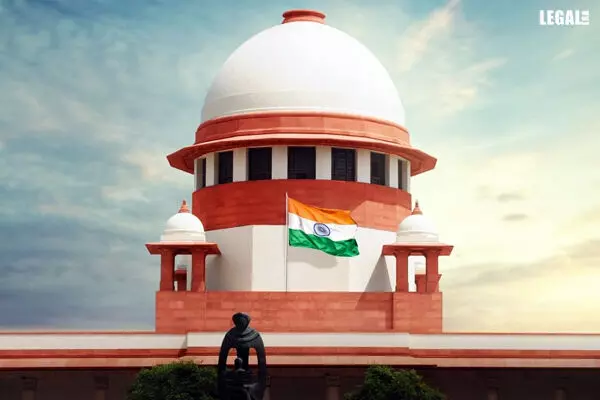- Home
- News
- Articles+
- Aerospace
- AI
- Agriculture
- Alternate Dispute Resolution
- Arbitration & Mediation
- Banking and Finance
- Bankruptcy
- Book Review
- Bribery & Corruption
- Commercial Litigation
- Competition Law
- Conference Reports
- Consumer Products
- Contract
- Corporate Governance
- Corporate Law
- Covid-19
- Cryptocurrency
- Cybersecurity
- Data Protection
- Defence
- Digital Economy
- E-commerce
- Employment Law
- Energy and Natural Resources
- Entertainment and Sports Law
- Environmental Law
- ESG
- FDI
- Food and Beverage
- Gaming
- Health Care
- IBC Diaries
- In Focus
- Inclusion & Diversity
- Insurance Law
- Intellectual Property
- International Law
- IP & Tech Era
- Know the Law
- Labour Laws
- Law & Policy and Regulation
- Litigation
- Litigation Funding
- Manufacturing
- Mergers & Acquisitions
- NFTs
- Privacy
- Private Equity
- Project Finance
- Real Estate
- Risk and Compliance
- Student Corner
- Take On Board
- Tax
- Technology Media and Telecom
- Tributes
- Viewpoint
- Zoom In
- Law Firms
- In-House
- Rankings
- E-Magazine
- Legal Era TV
- Events
- News
- Articles
- Aerospace
- AI
- Agriculture
- Alternate Dispute Resolution
- Arbitration & Mediation
- Banking and Finance
- Bankruptcy
- Book Review
- Bribery & Corruption
- Commercial Litigation
- Competition Law
- Conference Reports
- Consumer Products
- Contract
- Corporate Governance
- Corporate Law
- Covid-19
- Cryptocurrency
- Cybersecurity
- Data Protection
- Defence
- Digital Economy
- E-commerce
- Employment Law
- Energy and Natural Resources
- Entertainment and Sports Law
- Environmental Law
- ESG
- FDI
- Food and Beverage
- Gaming
- Health Care
- IBC Diaries
- In Focus
- Inclusion & Diversity
- Insurance Law
- Intellectual Property
- International Law
- IP & Tech Era
- Know the Law
- Labour Laws
- Law & Policy and Regulation
- Litigation
- Litigation Funding
- Manufacturing
- Mergers & Acquisitions
- NFTs
- Privacy
- Private Equity
- Project Finance
- Real Estate
- Risk and Compliance
- Student Corner
- Take On Board
- Tax
- Technology Media and Telecom
- Tributes
- Viewpoint
- Zoom In
- Law Firms
- In-House
- Rankings
- E-Magazine
- Legal Era TV
- Events
Supreme Court Upholds Piramal’s DHFL Resolution Plan, Overturns NCLAT Order

Supreme Court Upholds Piramal’s DHFL Resolution Plan, Overturns NCLAT Order
Introduction
The National Company Law Appellate Tribunal's (NCLAT) prior decision was overturned by the Supreme Court of India, which stated Piramal Capital and Housing Finance's resolution plan for Dewan Housing Finance Corporation (DHFL). The decision, which underlines the value of defending intellectual property rights and the repercussions of unlawful use, represents an important development in the DHFL insolvency case.
Factual Background
One of the top home finance companies, DHFL, experienced financial issues and went through insolvency. The National Company Law Tribunal (NCLT) accepted a settlement plan that Piramal Capital and Housing Finance had filed. The scheme was struck aside by the NCLAT after being contested by DHFL's financial creditor, 63 Moons Technologies Limited.
Procedural Background
Piramal Capital and Housing Finance appealed the NCLAT's decision to the Supreme Court. The Supreme Court looked at how well the plan complied with the Insolvency and Bankruptcy Code (IBC) and how the Committee of Creditors (CoC) decided to approve it.
Issues Involved in the Case
1. Whether the NCLAT was right to invalidate the NCLT-approved resolution plan.
2. How did the Supreme Court evaluate the plan's adherence to the Insolvency and Bankruptcy Code (IBC) and the Committee of Creditors' (CoC) involvement in approving it?
Submissions of the Parties
Defendant (Piramal Capital and Housing Finance Limited):
Piramal Capital and Housing Finance contended that the resolution plan complied with the IBC and that the NCLAT had made a mistake in its decision. The NCLT had properly authorized the plan, and the CoC had done so by a majority vote.
Plaintiff (63 Moons Technologies Limited):
63 Moons Technologies Limited argued that the resolution plan was not in compliance with the IBC, and the CoC's decision was not valid.
Discussion on Judgments and Legal Citations
The decision rendered by the Supreme Court in the current case is in compliance with earlier bankruptcy and insolvency decisions. The court relied on relevant case law, including the IBC, to support its decision.
Reasoning and Analysis by the Judge
The IBC's goal of maximizing asset value and encouraging a time-bound settlement process served as the foundation for the decision made by the Supreme Court. The court stated that the CoC's decision to approve the proposal was a business decision and that unless there are strong grounds to do otherwise, the courts should not be involved.
Basis for Calculating Damages
The court did not award damages in this case, as the dispute was related to the resolution plan and not monetary compensation.
Final Decision
The NCLAT's decision was overruled by the Supreme Court, which retained Piramal Capital and Housing Finance's resolution plan for DHFL. The NCLT was ordered by the court to carry out the resolution plan.
Law Settled in This Case
According to the decision in the present case, unless there are strong grounds to do otherwise, a resolution plan that has been accepted by the CoC and the NCLT is binding on all parties. Furthermore, the case emphasizes the significance of safeguarding intellectual property rights and the repercussions of unapproved use.


